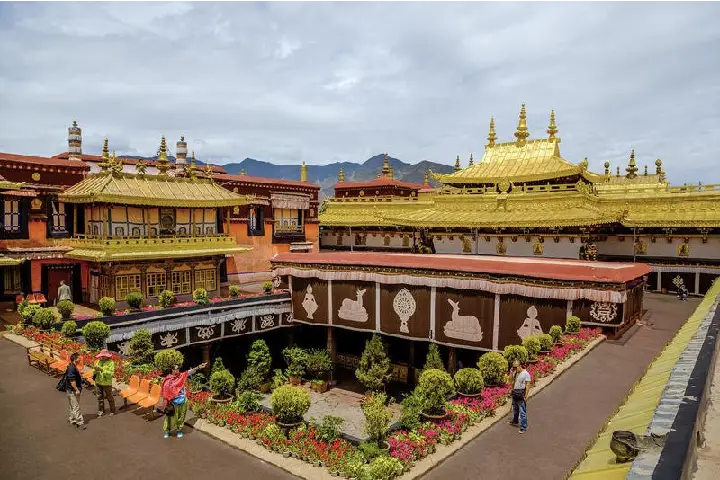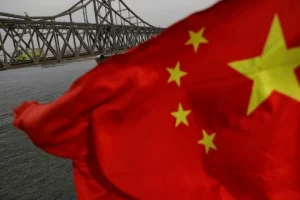In an apparent attempt to thwart any potential incidents during the sensitive period surrounding the anniversary of the Tibetan National Uprising of March 10, 1959, Chinese authorities have announced the closure of the Jokhang Temple in Lhasa for pilgrims from March 8 to 10.
The Jokhang is considered the most sacred place for Tibetan Buddhists and lies in the centre of Lhasa, Tibet’s capital. Many Tibetans visit it daily.
The Jokhang temple has been the site of protests by Tibetans against Chinese misrule in the past. There have also been incidents of self-immolations by Tibetans in front of the temple.
Sources said that a notification from the Jokhang Management Committee, dated March 6, that was pasted in public places in Lhasa states that there would be no public access to the temple during the period as it will undergo “cleaning up.”
The notification added that the temple will be open from March 11 as usual.
Also Read: There is no mention in Chinese imperial records that Tibet was ever a part of China: Sonam Frasi
Interestingly, Chinese state media said the Lhasa Traffic Police on March 2 announced restrictions on certain roads in the city on account of “upgrading and transformation of water supply network.”
The announcement said that the restrictions will be imposed between March 6 and March 12. These roads are not in the city centre, and the stated reasons for restrictions might have a valid basis, but the timing of the work around the sensitive political anniversaries period, including the Tibetan National Uprising of 1959 and pan-Tibetan demonstrations in 2008, raises questions.
However, this year, besides the general lockdown of Tibet Autonomous Region (TAR) to foreigners, the authorities have not issued any additional notice barring foreign travellers. In the past, there would have been such a ban for foreigners for a period of several weeks around the sensitive period.
Meanwhile, there are reports that the re-opening of the TAR, which spans about half of China-occupied Tibet, for foreign tourism is decided. A posting by the Lhasa Tourism Development Bureau on Chinese social media on March 4 invited probable visitors to let them know how they would like to arrive in Tibet, whether by train or by plane, saying the bureau is ready.
Sources say travel agencies have been told to get ready, and that the reopening can happen from as early as April, although the permit would be restricted to group tours.
Some travel agencies have already started announcing tours for pilgrimage to the sacred Gang Rinpoche (Mount Kailash) region in Western Tibet, with first group scheduled to leave in April.
It also seems that the reopening might include permission for foreign students to study in Tibetan institutions.
For instance, Canada-based historian Tsering Shakya tweeted on March 5 that Tibet University in Lhasa will restart a Tibetan language programme for international students in September 2023.
The TAR has been closed since 2020 to foreign tourists on account of the COVID-19 pandemic. In May 2021 it was announced that foreigners residing in China could get permits to visit the TAR.
However, in its latest report, the Foreign Correspondents Club of China said that all three of its member journalists who applied to go to the TAR in 2022 were denied permits. Even those who went to other open Tibetan areas faced restrictions.
Also Read: British Tibetans lobby with UK government to restore suzerainty clause with China




















